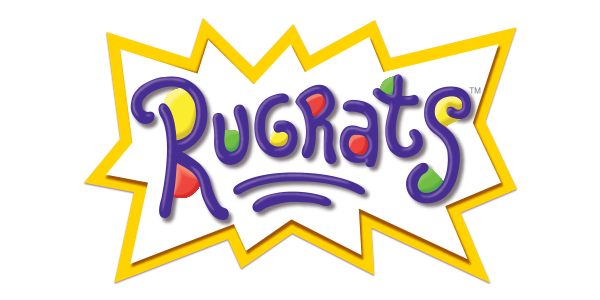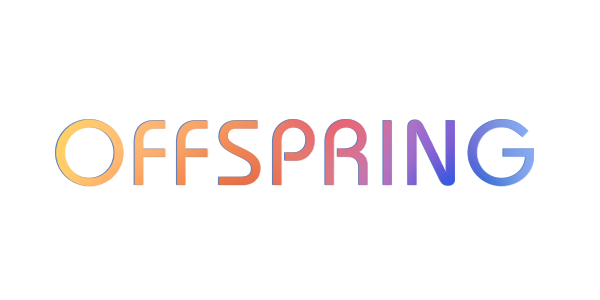Football fans of a certain age will remember a time when it was the Olympics, and not the FIFA World Cup, that was the showpiece event for the Australian men’s game.
During the 32 years of pain between 1974 and 2006 where the Socceroos did not qualify for a World Cup, it was moments like Ned Zelic’s miraculous goal to qualify the Olyroos for the 1992 Barcelona Olympics that lived with reverence in the memory.
And so, the class of 2024 will seek to continue the Olyroos tradition as they compete in the AFC U-23 Asian Cup live and exclusive from Qatar on Paramount+.
AFC U23 Asian Cup: Important Links
The finalists and third-place play-off winner will represent the AFC at the Paris 2024 Olympics, while the fourth-placed finisher will get a second chance in an intercontinental play-off against Guinea.
Australia finished third at the 2020 edition to qualify for the Tokyo Olympics, having previously missed out in 2016 and 2012 by exiting at the group stage.
Watch: AFC U23 Asian Cup 2022 Competition Recap
The build-up to this year’s U-23 tournament has been headlined by who’s not representing Australia rather than who is, with no bigger acrimony than the non-selection of Adelaide United star Nestory Irankunda.
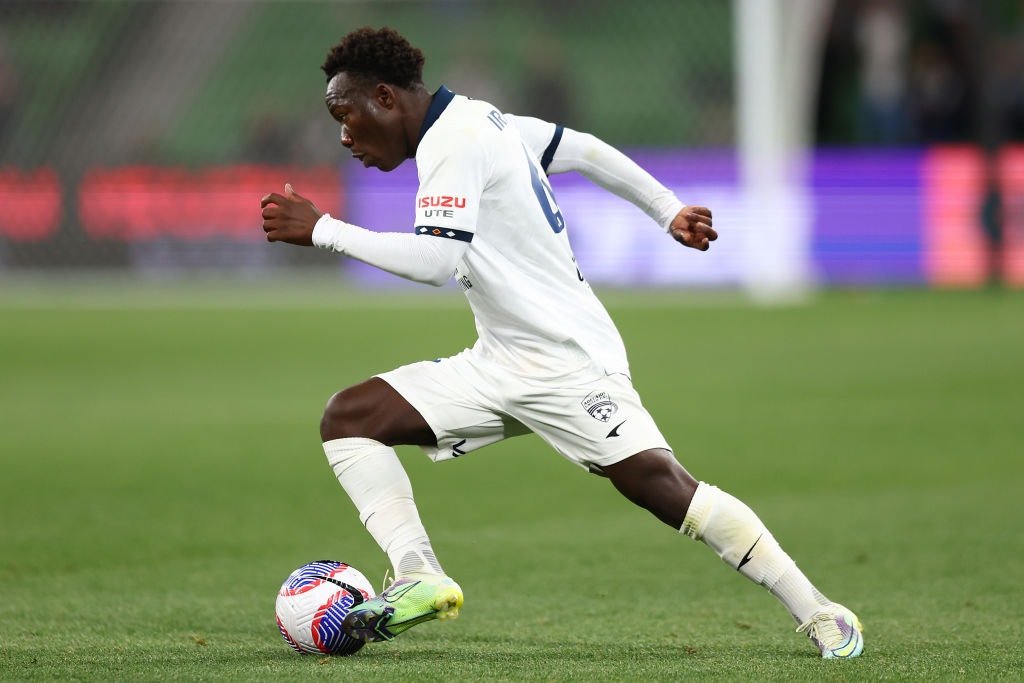
The forward, with a transfer already arranged to join German giants Bayern Munich, was left out of coach Tony Vidmar’s squad due to concerns over his readiness for international football and long-term development.
But Australia’s absentees of a best-available squad extend well beyond Irankunda, with Melbourne City star Marco Tilio out injured, and a host of European-based players not released due to the tournament not falling in a FIFA window where clubs are compelled to do so.
Alessandro Circati (Parma), Calem Nieuwenhof (Hearts), Patrick Yazbek (Viking) and Louis D’Arrigo (Lechia Gdansk) were all on the wish-list of the Olyroos but blocked from participating.
It leaves an Olyroos squad with 16 players from clubs in the Isuzu UTE A-League and seven players across Europe, the United Kingdom and Asia.
There are two Socceroos with senior caps in the Olyroos squad, with former Adelaide United player Mohamed Toure released from his loan at Paris FC. The other senior Socceroo is Garang Kuol.
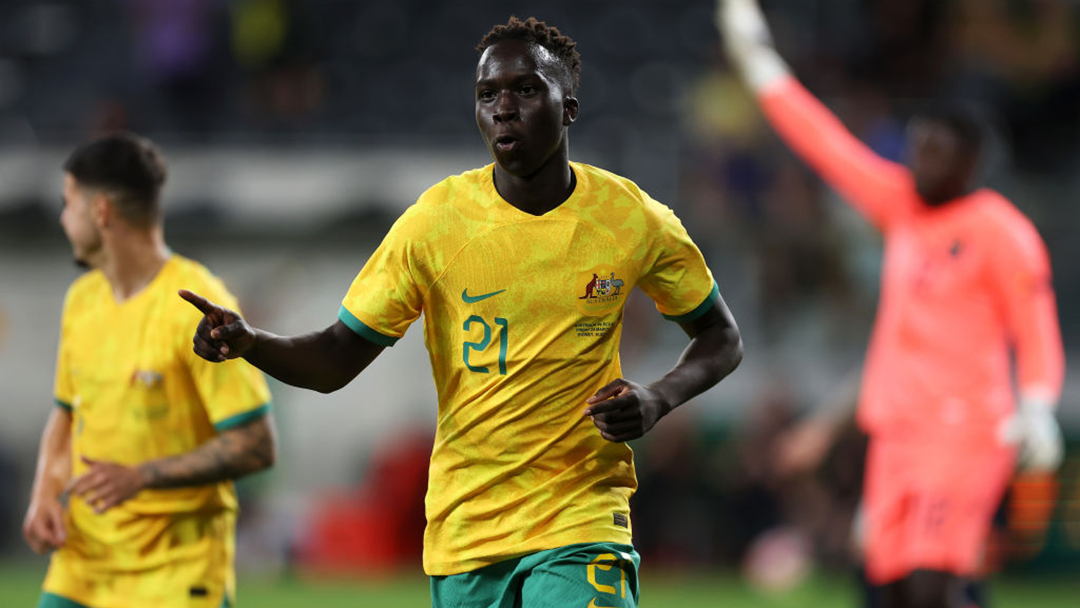
The 19-year-old has found game time hard to come by on loan from Newcastle United at his Dutch club Volendam and has not featured for the senior Socceroos in more than a year now since the two-game series against Ecuador in March 2023.
The goalkeeping stocks include former Adelaide stopper Steven Hall who has since been sold to Premier League club Brighton & Hove Albion, along with Perth Glory’s Cameron Cook and yet-to-debut Melbourne City backup Patrick Beach.
Defence is headlined by former Adelaide centre back Alexandar Popovic, now playing for Gwangju in South Korea, while A-League regulars Mark Natta (Newcastle Jets) and Jake Girdwood-Reich (Sydney FC) will be vying for a spot in the centre of defence.
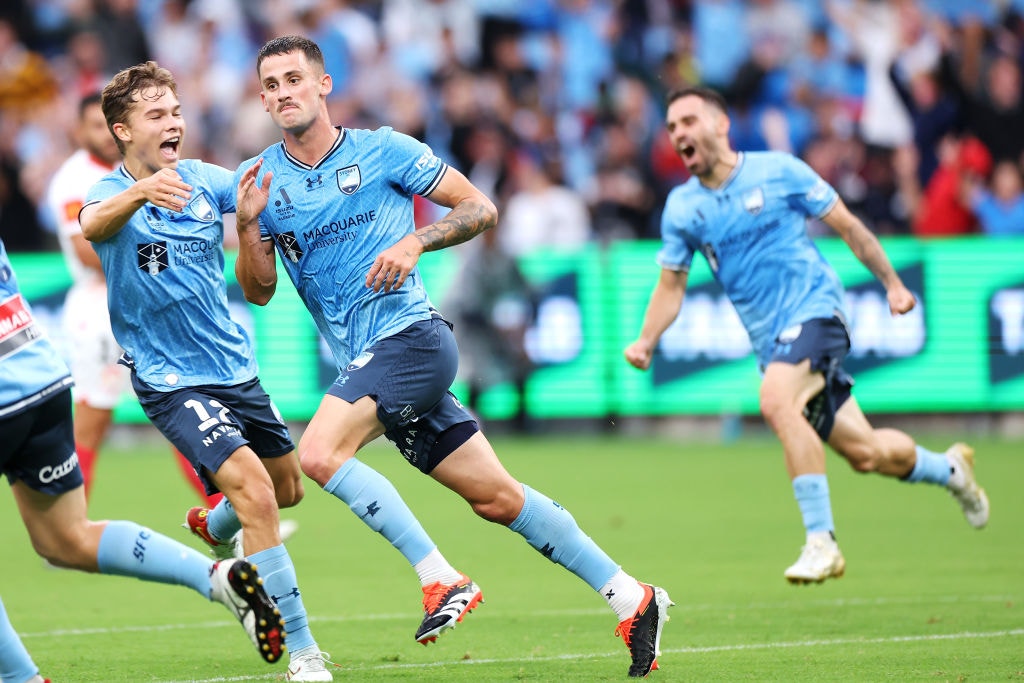
Full backs and wing backs are particularly well stocked with Jordan Courtney-Perkins (Sydney FC), Jacob Farrell (Central Coast), Lucas Mauragis (Newcastle Jets), Callum Talbot (Melbourne City) and ex-Perth Glory player Jacob Italiano (Monchengladbach II).
All have been clocking regular game time for their clubs giving a match-hardened and versatile array of options to coach Tony Vidmar, himself a defender in his playing days.

In midfield, Jake Hollman has been rewarded for his break-out season at Macarthur FC, while Melbourne Victory’s Ryan Teague has shown himself an adept tempo-setter in the middle of the park.
Fellow Victory midfielder Jordi Valadon is also in the squad after beginning to emerge in the Isuzu UTE A-League through the course of the season, while creativity can be provided by Brisbane Roar’s Keegan Jelacic and former Sydney FC playmaker Adrian Segecic (now at Dordrecht in the Netherlands).
Segecic was one of the stand-outs of Australia’s U-20 Asian Cup last year, which fell agonisingly short of qualifying for the FIFA U20 World Cup. The 19-year-old is the fourth-youngest member of the Olyroos squad, with only Garang Kuol, Steven Hall, and late call-up Rhys Youlley the youngest.
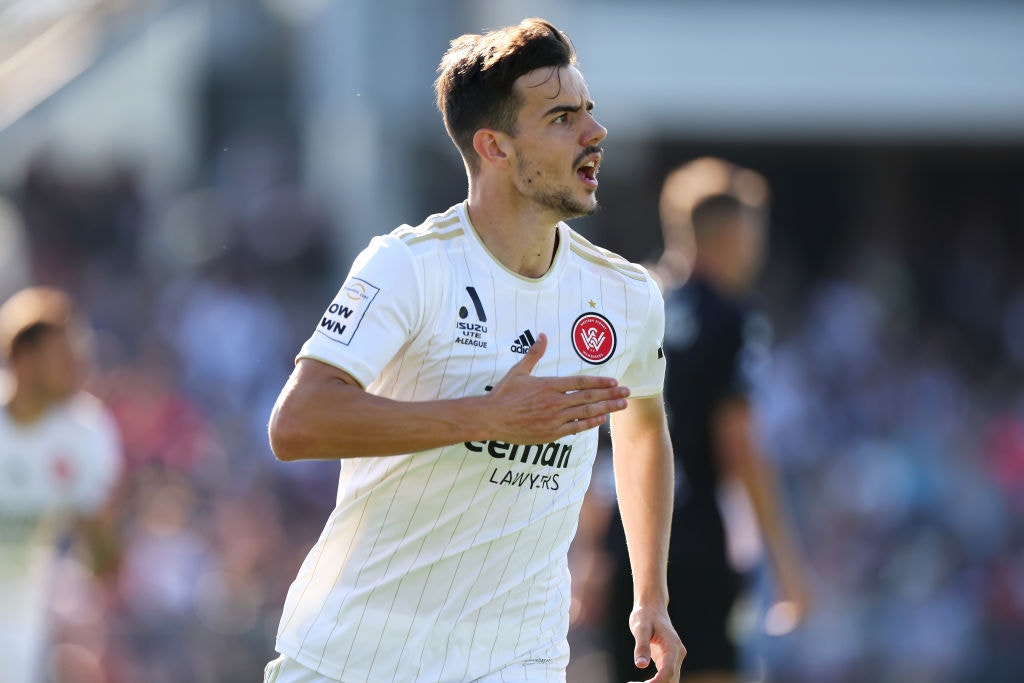
Without Irankunda present, no position group of the team will be under more scrutiny than the attackers. Lachlan Brook has been a regular contributor of goals for Western Sydney Wanderers in his first season back in Australia after time in the United Kingdom, while teammate Nicolas Milanovic has shown his eye for goal with some spectacular strikes among his eight for the campaign.
Melbourne Victory winger Nishan Velupillay may be called upon more regularly with Marco Tilio’s absence through injury, while Mohamed Toure, and brothers Alou and Garang Kuol will be hoping the green and gold shirt can lead to a significant uptick in form compared to their current club output.
22-year-old Alou’s return to Central Coast has been sporadic as far as scoring goes, with just four goals in almost 1200 minutes of play and none in his last 10 appearances dating back to December 31.
Brother Garang’s strike rate is also goal shy for club, with little game time since November and just one goal for Eredivise outfit Volendam. Mohamed Toure has been even more starved of game time for his club, with just 154 minutes for Paris FC in Ligue 2, and his solitary goal for the season coming all the way back in September.
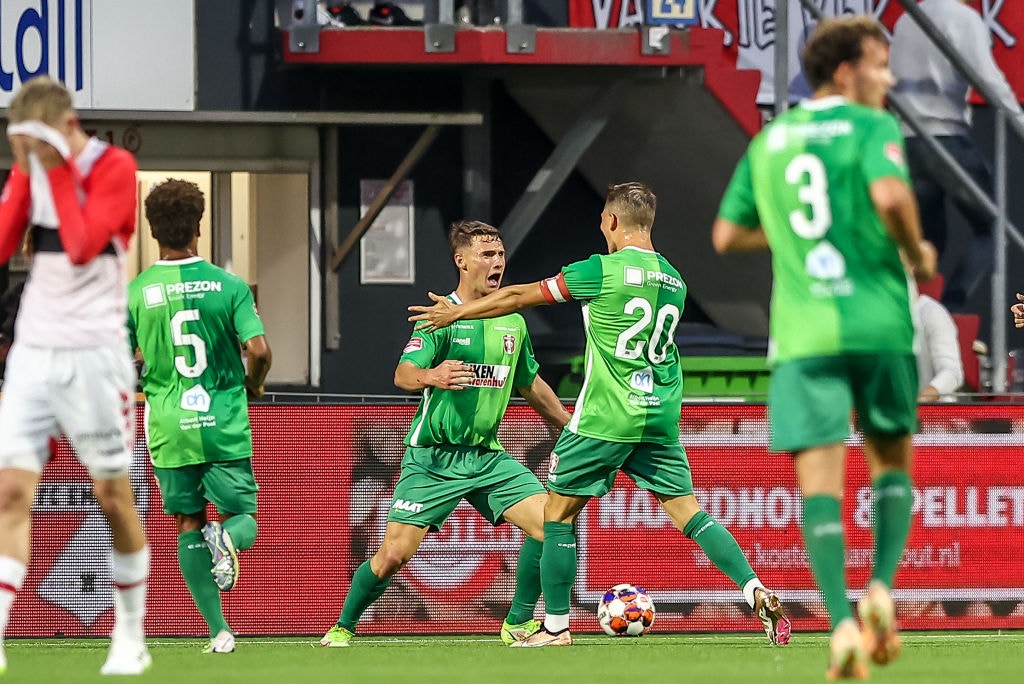
While those numbers may make for glum reading, the chance to escape difficult club situations and play for the big prize of going to the Olympics might be just the tonic for the strikers to re-find their goal scoring touch. For the sake of the Olyroos team, they will need too.
Since the formation of the U-22 (then U-23) Asian Cup, there has been no one dominant team, with five different winners since the first edition in 2013; Iraq, Japan, Uzbekistan, South Korea and Saudi Arabia.
But Olympic qualification shows a more identifiable trend, with both Japan and South Korea having both qualified with two out of the three AFC spots at every Olympics dating back to 1996.
Along with the traditional powerhouses of Asian football, one team to watch for overall honours is Uzbekistan. Eight of the Uzbek team have already won a senior cap for their country, and having qualified for last year’s U-20 and U-17 FIFA World Cups, the emergence of the central Asian nation as a football force may culminate in a first-ever Olympic qualification.
The 16-team tournament comprises of four groups of four, with the top two in each advancing to the quarter finals. Australia drew hosts Qatar, Jordan and Indonesia in their group, with Jordan’s form line including wins against Oman and Syria in qualification, while Indonesia were too strong for Turkmenistan and Chinese Taipei.
Australia plays its first two matches against Jordan and Indonesia at the Abdullah bin Khalifa Stadium in Doha, before finishing the group against Qatar at the Jassim Bin Hamad Stadium in Al Rayyan.









